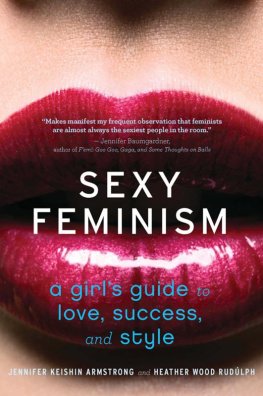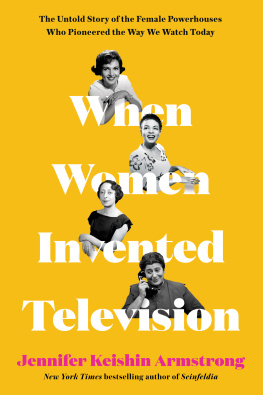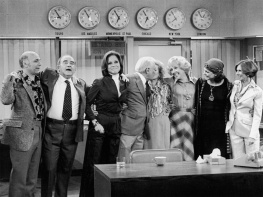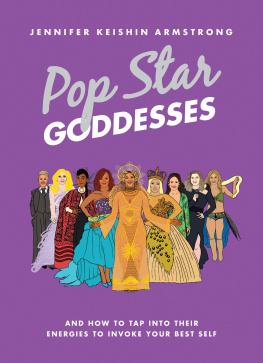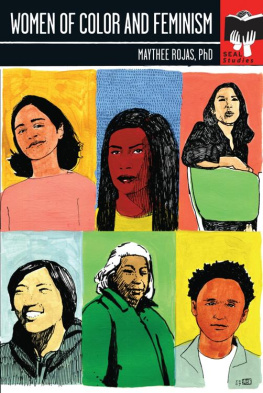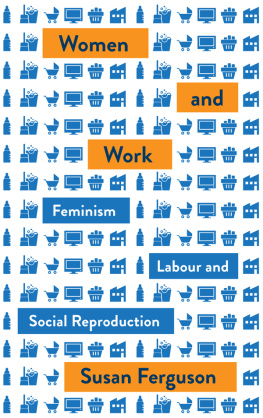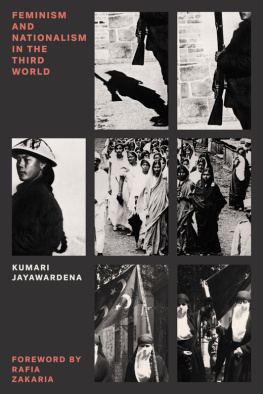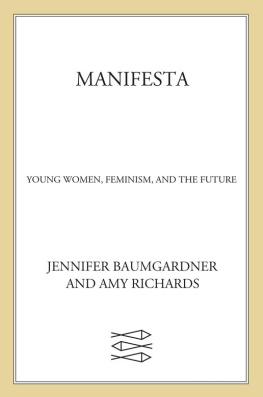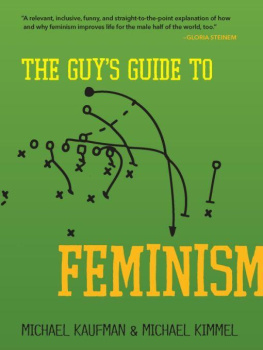Copyright 2013 by Jennifer Keishin Armstrong and Heather Wood Rudlph
All rights reserved
For information about permission to reproduce selections from this book, write to or to Permissions, Houghton Mifflin Harcourt Publishing Company, 3 Park Avenue, 19th Floor, New York, New York 10016.
www.hmhco.com
The Library of Congress has cataloged the print edition as follows:
Armstrong, Jennifer Keishin. Sexy feminism : a girls guide to love, success, and style / Jennifer Keishin Armstrong and Heather Wood Rudlph.
p. cm.
A Mariner Original.
ISBN 978-0-547-73830-7
1. Self-realization in women. 2. Feminism. 3. Success. I. Rudlph, Heather Wood. II. Title.
HQ1206.A735 2013
305.42dc23
2012040351
Cover design by Mark R. Robinson
Cover photograph Philippe Regard / Getty Images
e ISBN 978-0-547-73831-4
v4.0116
Portions of this book first appeared on the authors website, Sexy Feminist (www.sexyfeminist.com), and brief portions were reprinted online on The Huffington Post and AlterNet.
To our mothers,
JoAnn Armstrong and Annette Wood,
who made us the women and
the feminists we are today
FOREWORD
Our Own Feminist Journeys
W E ARE FEMINISTS . But we were not born that way, nor did we have to earn our PhDs in womens studies to get that way (though some serious college study helped). We both started out the most regular of suburban white girls in the 1970sas if you couldnt tell all of this by our first names. We did not suffer some of the worst injustices of our time: We were not wealthy, but our families had more resources than the vast majority of the world. We were immune to the prejudice gay people our age faced because we were born straight. Our upbringings were almost shockingly mainstream. We both embraced high-school cheerleading without irony, agonized over good grades and boy crushes, and worshipped the likes of Pat Benatar, Madonna, and Cyndi Lauper.
Like our love for those ladies, our feminism evolvedfrom something cool to reference to something we believed was intrinsic to our lives. You might see a little of yourself in our stories, even if you arent just like us.
Jennifer: Words Gave Me The Power
My youth in south suburban Chicago, land of winding subdivisions and endless strip malls, did not favor the intellectual or political, though smarts and humor ran deep, and good grades were a priority. My parents and II was an only child until age eightliked food (grilled hamburgers, baked potatoes), music (Simon and Garfunkel, Billy Joel), and baseball (the White Sox, not the Cubs). We lived in a brown split-level on a safe cul-de-sac called Forest Court. We liked one another. We acted like The Brady Bunch, with fewer kids and less strife. Yes, that little strife.
In fact, I consider both of my parents to be my first feminist role models. My father worked as a grocery buyer for a chain of stores called Scot Lad Foods, and he was the primary breadwinner. He carried a briefcase in which he kept tantalizing supplies such as yellow legal pads and paper clips, and he let me play office, one of my favorite activities, with his stuff. Even better, I got to visit him at work and sit in his chair, talk on his phone, and doodle on his desk calendar, dreaming of someday having a workplace of my own. Id watched a lot of Mary Tyler Moore Show reruns over the years, and in a twist Im sure working girl Mary Richards could never have seen coming, I somehow managed to idolize her by idolizing my father.
My mother had a part-time job as a substitute teacher, though she mostly stayed at home to raise me. She served as a best friend as much as a mother, and we shared the same taste in pop music and clothing. I wanted to be her and my father at the same time. What a lucky kid.
Of course, traditional gender roles permeated our home life. When Dad came home from a long day at the office and noticed I was wearing something new, hed say, Thats pretty. Whered you get that? And I would answer, Mom bought it for me. This inspired chuckles from my parents, but only later did I figure out whyit was Dad who earned the money, Mom who spent it. Even so, my family counteracted those traditional ideas with lots of empowering messages. My grandfather never stopped talking about how I would be the first woman president. (Well leave aside the fact that he apparently knew we wouldnt be ready for a female president for at least another forty years or so.) My father played catch with me, taught me chess, and shared his love of astronomy with me. My mother insisted on giving me thorough and repeated sex talks, starting when I was in seventh grade, with lessons on everything from birth control to saying no to when to say yes. (My mothers patented method to ensure the child will listen to these talks: Subject her to them in the car; the kid cant escape.)
When my siblings were bornfirst my brother, when I was eight, then my sister, when I was tenI became an assistant parent. This gave me an extra sense of authority and bravado that would come in handy later.
Both my parents supported my first feminist fight, though at the time I didnt realize thats what it was: After spending my formative years as a cheerleader for the Oak Forest Flag Football League, I started coaching the younger girls cheerleading teams when I was about twelve. At that time, the league decided to turn the annual cheerleading competition into an exhibitionthat is, they wanted to eliminate the judging aspect and give everyone a nice participation ribbon and a pat on the head for coming. I would have none of thatif the boys, as football players, could handle weekly competition culminating in an end-of-the-season trophy ceremony ranking teams first, second, and third, surely the girls could compete for one night. To me, competition was what made cheerleading a real sport, a sport I happened to love for its combination of performance, dance, and athletic stunts. I argued just that when I went before the leagues board to fight for the cheerleaders competition. I lost, but I was glad Id fought.
Such early lessons in gender relations sank in without my thinking about them much, because I was, in many respects, fortunate. Though I suffered a minor sexist setback when our junior-high band director told me I had to play the clarinet instead of the drumsthose were for boys, he saidI got to do everything else I wanted. I was a cocaptain of my competitive high-school cheerleading team, sports editor of the school newspaper, and an officer in the National Honor Society and on the student council. I fell in love during my senior year with a boy named Dave who treated me as an equal and best friend, with sexual pressure taking a back seat to intimate talks. Life, overall, went smoothly. I had no reason to believe I would ever be treated as anything but equaland usually as special.
College changed things. At Northwestern University, I fell behind. I no longer sat at the top of the class. I was getting Ds, I hated my dorm, and I had only one real friend: my perfectly coiffed, well-off, effortlessly successful roommate. Dave broke up with me out of the blue, leaving me to fend for myself among fraternity boys who wanted me to come back to their rooms and who had no interest in hearing my patented Im not ready for sex and I hope youll respect that talk that had worked just fine on high-school boys. I no longer led anything, I wasnt on any teams or councils, I didnt know what I wanted to do or who I wanted to be, and my roommate made everything look easyit all brought on massive insecurity. Womens studies classes, however, started to help turn things around. Recognizing my mothers and grandmothers livesand everything about them I didnt wantin Betty Friedans
Next page
